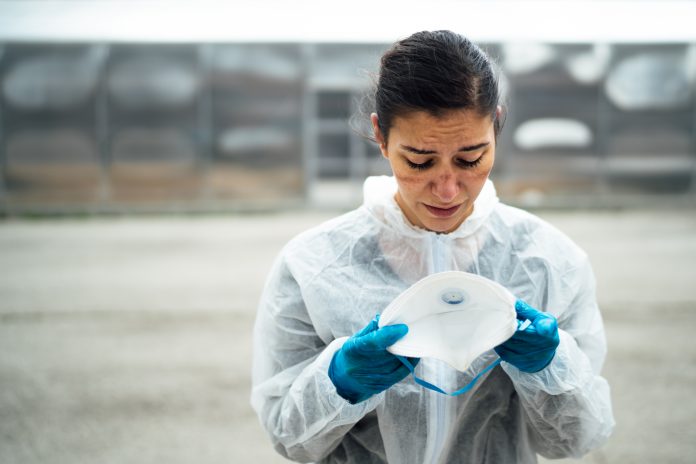Researcher’s from Flinders University studied the rise in post-traumatic stress disorder (PTSD) symptoms as a result of COVID-19 pandemic panic
A team of psychology researchers from Flinders University conducted a study examining people’s response to the stresses of the COVID-19 pandemic.
The survey considered a range of reactions to repeated disturbing and unwanted images, memories or thoughts about the COVID-19 pandemic.
Among the 1040 online participants, 13% presented symptoms to those similar to post-traumatic stress disorder (PTSD).
PTSD is a set of reactions that can develop in people exposed to an event that threatened their life or safety.
The team has warned that more needs to be done to cope with the potential short and long-term spike in PTSD cases resulting from the pandemic.
Lead researcher Associate Professor Melanie Takarangi, says: “While the global pandemic does not fit into prevailing PTSD models, or diagnostic criteria, our research shows this ongoing global stressor can trigger traumatic stress symptoms.”
“We found that traumatic stress was related to future events, such as worry about oneself or a family member contracting COVID-19, to direct contact with the virus, as well as indirect contact such as via the news and government lockdown – a non-life threatening event,” adds co-author Victoria Bridgland, who is undertaking a PhD studying the triggers of PTSD.
“Our findings highlight the need to focus on the acute psychological distress – including the perceived emotional impact of particular events – associated with COVID-19 and build on other research from the past year that demonstrates the damaging psychological impact of COVID-19 on mental health,” says Ms Bridgland.
“Notably, while most of our participants reported experiencing some form of psychological distress and 13.2% of our sample were likely PTSD positive when anchoring symptoms to COVID-19, only 2% of our total sample reported they had personally tested positive to COVID-19, and only 5% reported that close family and friends had tested positive.
“It, therefore, seems likely that the psychological fallout from COVID-19 may reach further than the medical fallout,” the paper concludes.
The study has been published in PLOS ONE











